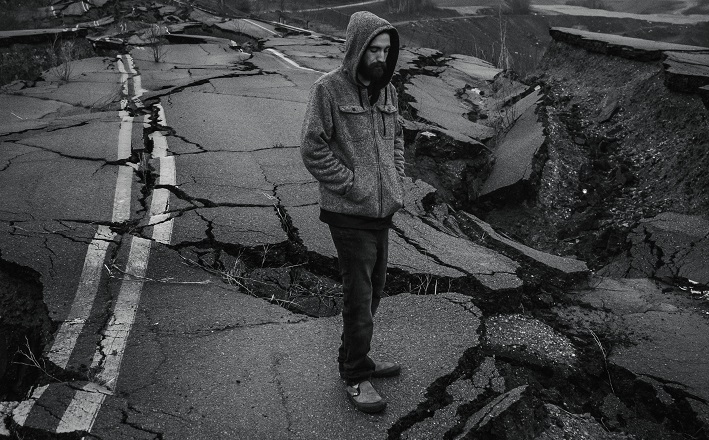To have this week’s texts before me, it might seem an odd choice to write on the least familiar and beloved of them. Do justice, love mercy, walk humbly … blessed are those who hunger and thirst for righteousness … for the message of the cross is foolishness. The lectionary is playing the hits this week.1
And yet, I want to call your attention to this week’s psalm. It’s short and sweet (five verses); it seems straightforward, but there’s plenty to reflect on.
“What’s that?”
O Lord, who may abide in your tent?
Who can stand on your holy hill? (Psalm 15:1).
My two-year-old daughter, like most children her age, stitches our life together into a patchwork quilt of brief, often silly, phases she goes through. The past two weeks, she’s been asking, “what’s that?” approximately fifty-eight times a day. She knows what the things she’s asking about are, and we know she knows (and she knows we know she knows …). Whether it’s something she’s named many times before or a thing we just identified for her, something is either comforting or fun for her about asking us again.
Like Psalm 15, the week’s text from Micah opens with a question:
With what shall I come before the Lord
and bow myself before God on high? (Micah 6:1, NRSV).
Now, in the Micah text, the question is clearly sarcastic–the prophet mimicking worshipers who pretend not to know the answer. But I think the same might be true on some level for the psalm. We know the answers to these questions–these texts are not full of new information. Do justice, love mercy, walk humbly with your God; be honest and fair in your speech, tell the truth about the world, don’t take advantage of people or unjust situations. We know these things—and God knows we know them. Why? Because these ethical practices are woven throughout the pages of the entire Bible.
A cynical read on this dynamic would suggest that there is something comforting in feigning the need to hear this again—when we do, we can pat ourselves on the back for having been right all along. But at the same time, the world is such a complex place, a human life so full of questions with unsatisfying answers, that perhaps there is a comfort in hearing—again and again—it’s not that complicated.
Those who do these things…
While they share the formal element of opening with a question, as well as thematic emphases, the settings of the psalm and the Micah text are distinct from one another. Any standard commentary will tell you that Micah 6 is a “courtroom scene”—a common genre in prophetic literature—while Psalm 15 was most likely a liturgy for entrance to the temple. These kinds of insights are helpful not only in understanding the biblical text but in casting your imagination in the right direction as you try to get inside of it and crack it open. At the same time, when it comes to Psalm 15, they also use unhelpful phrases like “ideal worshiper” as though it is a thing that an ancient audience would have understood that is no longer meaningful to us. As a rule, mainline Protestants bristle at discussions of purity; we can much more easily digest meditations on morality. And so, when a biblical text seems to say, “you don’t have to care about that purity stuff, care about this justice stuff,” we can get more comfortable. Those obsessions were wrong-headed—our concerns are right-minded. Good job, us. (See above re: questions you already know the answer to.)
This is a tension present within the Hebrew Bible, so it’s not entirely imported. But it’s interesting that Psalm 15 and Micah 6 share this apparent emphasis and that they are among the ones selected for the lectionary from the wild, wooly and sprawling complex of literature that is the Hebrew Bible. However, I worry that the way we read, teach, and preach these texts too often distort our view not only of biblical religion and the ancient people who are our ancestors in faith, but of the God of ancient Israel, who—spoiler alert!—is also the one we worship and call on in prayer.
One of the first things we do as we gather in worship is confess our sins and hear that they are forgiven. The idea that one would need to stand “blameless” before God before entering a holy place is foreign to us. (For what it’s worth, the Hebrew behind the NRSV translation “blameless” is tam, a word that probably has more to do with integrity than innocence.) Religious practices change over time, our theology may expand to encompass new revelation or growing understandings; where we get into trouble is when we assume that ancient people related to God on a surface level or in a more transactional mode than we do today. We confess that none of us are blameless (for the record, we say this because it’s true), so it can be tempting to read a text that demands such a state before God and think it reflects a primitive religious worldview, or that our view of God and humanity are more nuanced now. Or more harmfully (and equally wrong), that this is how Jewish people today think of approaching God.
Sacred space(s)
What places or spaces are sacred or for you? What makes them different from other places? Why do you seek them out? For most, it is probably a place where you feel a particular closeness with God. Perhaps it is a hall of worship. And you might go there at certain times when everyone in your community does, but also when you have a pressing need, are feeling depleted, or the complicated circumstances of your life give you the sense that you need to reconnect with the God who loves you and has claimed you in a special relationship. Why do we assume that it would have been so different for our ancient siblings? That is, would someone really make the effort to go to a holy place just to feel self-righteous? (Maybe.) But would there also have been others who genuinely sought communion with the divine? (Surely.) To both of these people, the psalm says, “come in–but consider if you are conducting yourself differently in here than you do out there.”
An added element is that the priests considered it their responsibility to ensure that God’s presence was hosted well, and justice and integrity in the community of the faithful were a part of that work. Of course, there were abuses of power, and it is easy to read this psalm and think of all of those who would be counted as the “wrong sort” of people. But the restrictions we see in the Bible around sacred spaces have more to do with the holiness of God than the righteousness of people. Consider the possibility that this is not about the religious establishment preserving the right to exclude, but about maintaining a space where God will continue to dwell and bless the entire community. To catch this drift, take seriously what the text says. It provides examples of life-giving conduct; it lifts up loving actions as the ones that are just, even when they cost you something. Dwelling in the house of the Lord, then, is not about you alone being right before God—it’s about you with and among other people. (From the pew in the back, you can hear Micah saying, “hear, hear!”)
Body language
Notice, also, how physical this short little psalm is. Residing (gur), dwelling (shakan), walking (halakh), speaking (davar), shaking (mut)—all physical verbs that appear here. These five verses make reference to your heart (levav), your tongue (lishon), your eyes (aynayim), and perhaps your feet. (The verb for “to slander” in verse 3 is ragal, which—though not entirely clear how—might be related to the word regel, “foot”). The one who formed you may see your innermost heart, but how you move your body through this world also matters to God. The psalms love bodily imagery. It’s not surprising, given that this is where we have the greatest ratio of human speech to God in the Bible. We spend a lot of time thinking about our bodies, don’t we? So then, how unsurprising that this part of the Bible is where the body—with all its glories and limitations—would come to the fore. Perhaps more surprising is that in a collection of poems where our souls cry out to God in praise and lament, our bodies would be so fully involved!
As biblical scholar Ellen Davis describes it, to pray the psalms is to “improve our aim.” We join in the stream of our long tradition, layering our voices on top of the millions of others who have sung, spoken or whispered these same words. In doing so, we learn more about who God is and who we are in relationship with God. Why do we assume that it would have been any different—any less emotional or meaningful for people in the ancient world? Why do we assume that they went to a sacred space or yearned to have integrity before God for any reason less complex than we do today.
On not being shaken
One of the genres among the 150 poems of the Psalter is the “psalm of instruction.” While this likely served a liturgical purpose in its original setting, as we wear smooth the language of these ancient prayers with our worries and hopes, let us also consider this a psalm of instruction—instruction on how not to be shaken.
It’s not entirely clear how the last line of the psalm is connected to the first:
O Lord, who may abide in your tent?…
Those who do these things shall never be moved (Psalm 15:1,5).
In short order, we moved from images of sojourn to images of stability. It may be that the psalm has zoomed out, though there are no other signs that this is the poetic intention. But in the end, we are left with the assertion that the kinds of things that you do as a member of a holy assembly are also the things that are needed for living a good life in the wider community. That there is not one set of rules for in here and another set for out there.
Another possibility is that the answer to this question is a stark, “no one.” None of us are free from implication in the injustice and greed and selfishness that shapes so much of the world we live in. No one can really stand before God and say, I do not participate in anything that harms my neighbor. And yet here we all are, with our enduring hope that there will be integrity, generosity and justice within and without. And while our contemporary culture probably places too high a premium on stability—which is ultimately an illusion (… right?)—here God says that the kinds of places God is pleased to dwell are characterized by integrity, kindness, truth-telling, sacrificial love, generosity and justice. Sounds pretty good to me too.
Anna
Notes
- Read an article by Martha E. Stortz on Matthew 5: “First Words: What the Beatitudes Tell Us about Jesus as a Preacher.”

